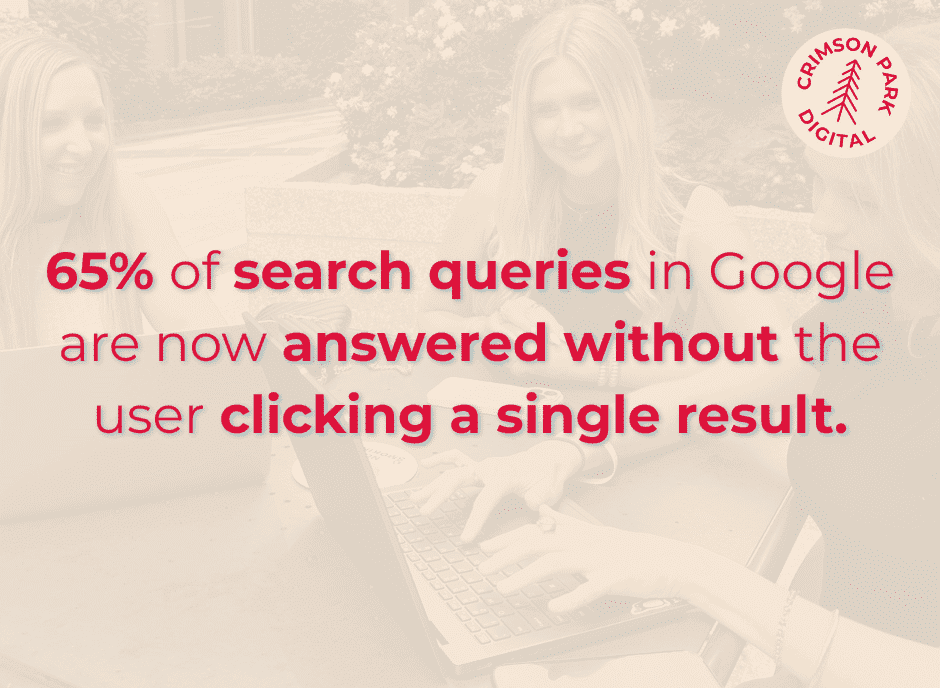Google’s AI Overviews: The New Search Game Changer
First, what are AI overviews? Imagine Google putting on a super-smart pair of glasses that don’t just scan your content for keywords, but actually understand the meaning behind every sentence. It’s like moving from reading headlines to having a real conversation with your content.

Google’s AI is all about semantic search, which means it’s focusing on context, not just isolated words. It aims to grasp what the user really wants and find content that answers those deeper questions. This shift means Google is less interested in keyword stuffing and more excited about content that feels genuinely helpful, authoritative, and relevant to real people. For content creators, that’s a big deal.
Why This Matters for Your Content Strategy
The search game is no longer about sprinkling keywords all over an article and hoping for the best. It’s about crafting content that fits user intent like a glove. AI-driven search understands whether your content really addresses the questions people have. This new search intelligence highlights several important things:
- User intent rules. Your content should answer questions that users haven’t even thought to ask yet.
- Authority counts more than ever. Google trusts experts and authoritative sources to provide accurate, trustworthy information.
- Personalization is king. Search results adjust depending on who’s searching, what they like, and their behavior.
What does all this mean? You need to think beyond basic SEO. Your content strategy needs to become smarter, more thoughtful, and centered on your audience. In fact, 65% of search queries in Google are now answered without the user clicking a single result, a clear sign that zero-click search experiences are becoming the norm. Understanding how to optimize your content for these AI-driven, no-click moments is essential to staying visible in a changing SERP landscape.

The Big SEO Impact: Smarter, Not Harder
Traditional SEO felt like a checklist: keywords here, meta tags there, backlinks everywhere. Now, it’s less about boxes to tick and more about stories to tell. Google’s AI rewards content that dives deep and provides genuine value. You’ll notice:
- Content that answers specific user needs ranks better. General fluff? Not so much.
- Authority and trustworthiness get you brownie points. Think expert quotes, credible sources, and real-world proof.
- Mobile-friendliness and site speed aren’t just tech niceties; they’re essentials. AI notices if your site loads slowly or looks funky on phones, and that hurts rankings.
The best content is less robotic and more human. The AI algorithms want to connect users with content that feels authentic, useful, and easy to digest.
Rethink Your Content with AI in Mind
How do you get ahead in this AI-fueled search world? Start by shaking up your SEO mindset. Instead of chasing keywords, zero in on what your audience actually cares about. Here’s the kicker: Google’s AI tools can actually help you do this. They analyze how people interact with your content, identify gaps, and even predict trends. However, these tools are most effective when used by experts who know how to translate that data into a winning strategy. Here are a few fresh ideas for your content approach:
- Focus on in-depth, authoritative content that covers topics thoroughly.
- Utilize AI-powered tools to figure out what your audience really wants.
- Think beyond text. Videos, infographics, and interactive stuff make content more engaging.
- Keep your content updated and relevant. AI rewards freshness.
Your content strategy needs to be flexible. AI is learning fast, so staying ahead means keeping a close eye on how things evolve.
Google’s AI Tools: Not Just Buzzwords
Google isn’t just throwing AI buzzwords around; they’ve got real tools that help marketers like you get smarter about content. These include:
- Automated keyword research that goes beyond simple volume numbers and finds high-impact opportunities.
- Content gap analysis that spots what your competitors are missing.
- Predictive analytics that give hints about what’s likely to trend next.
Using these tools right takes some skill, but they make your content sharper, more targeted, and more likely to get clicks.
Optimizing User Experience for the AI Era
Here’s something you might overlook: AI also cares about how users experience your site. It’s not enough to have great content if your site is slow or clunky. Google’s AI looks at things like:
- Site speed: Nobody waits forever for a page to load.
- Mobile friendliness: Most searches occur on phones. Your site had better look good and work well on all devices.
- Engagement signals: Are users sticking around or bouncing off quickly?
Improving these areas keeps your site AI-friendly and users happy.
Keep Measuring and Tweaking
The AI landscape changes fast. What works today might need adjustment tomorrow, or next week. That means you need to be comfortable with constantly checking how your content performs and making tweaks. Experts track engagement, bounce rates, conversion rates, and other key metrics. They can even suggest what to change next to boost results. It’s like having a coach who watches your game and gives instant feedback.
What’s Next? The AI Future of Content
The future is looking bright for AI in content and SEO. We’re talking smarter voice search, real-time personalization, and AI that can even create multilingual content on the fly. Google’s AI will continue to improve at understanding intent and context, which means your content strategy must also evolve. Staying informed and ready to adapt will keep you on top.
Why Hiring a Pro Makes Sense
All this AI talk might have you thinking you need to become a full-time AI analyst or content scientist. Spoiler: you don’t. Digital marketing agencies like ours specialize in these cutting-edge tactics on a daily basis. We blend AI insights with creative storytelling, making sure your content hits all the right notes.

While you can start with general knowledge and some DIY tools, scaling your efforts and really mastering AI-driven content strategy usually means teaming up with experts who live and breathe this stuff. It’s the smartest way to stay ahead without getting overwhelmed.
Stay Ahead With Smart, AI-Aware Content
Google’s AI overviews aren’t just a passing trend. They’re a sign of how search is evolving, becoming more intuitive, user-focused, and smart. Your content strategy needs to keep pace, focusing on quality, authority, and user experience. Don’t stress about mastering every AI detail on your own. Get the basics, stay curious, and consider partnering with experts (like CPD!) who can unlock the full potential of AI for your content. Ready to level up your content strategy with AI insights and expert support? That’s how you stay relevant, visible, and competitive in a world where Google’s AI is calling the shots. Schedule a consultation today to discover how we can help enhance your AI-driven search content strategy.


